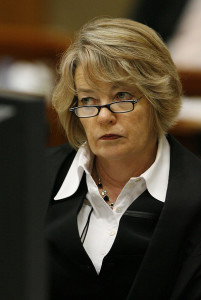
High Court justice Helen Cull
Bank of New Zealand will need to continue supplying banking services to a controversial Christian community, following a ruling by the New Zealand High Court late last week.
The Christian Church Community Trust, more commonly known as the Gloriavale Christian community has been disputing the bank’s attempt to cancel services for 14 months. The trust operates more than 80 accounts with BNZ across a range of trading entities and has banked with BNZ for more than 40 years.
BNZ terminated the relationship in July 2022, in reliance on a standard business banking contract, citing human rights breaches. The bank gave Gloriavale three months to find alternative banking arrangements.
High-impact negotiation
masterclass
July 9 & 16, 2025
5:00pm - 8:30pm
This high-impact negotiation masterclass teaches practical strategies to help you succeed in challenging negotiations.
Gloriavale first obtained an interim judgment – precluding the closure of accounts – in late 2022.
BNZ was relying on its Group Human Rights Policy in withdrawing services to the trust, and invoked a decision of the NZ Employment Court (Courage v Attorney-General) from May 2022, to justify the termination of its relationship with the Gloriavale entities.
In the Employment Court case, three former members of the remote community on New Zealand’s West Coast were found to be employees – working from the age of six – rather than “volunteers” as the community leadership claimed.
Gloriavale challenges BNZ’s reliance on this decision, “on the basis that it was interim, ‘naturally retrospective’ and concerned only one of Gloriavale’s entities,” High Court Justice Helen Cull wrote.
“It says that BNZ’s decision has caused immense pressure for the community and its members, who are presently under unprecedented scrutiny from multiple sources,” the judge wrote.
“Gloriavale emphasises its ‘total reliance’ on BNZ’s services for its day-to-day functioning of its entities for those living in the community.”
Despite making attempts to find alternative banking arrangements, “Gloriavale reports that it has been turned away from every bank and seeks the court’s protection to enable its businesses to continue to operate. Without the court’s protection, Gloriavale says that payment toward the community’s most basic functions— including medical care, rates, food and clothing—may be jeopardised.”
Located in the hinterland of the South Island, Gloriavale is a self-sufficient and isolated community, with members living and eating communally and adhering to strict gender roles. They wear distinctive mandated clothing as they work in the community’s numerous business entities, including large-scale dairy farming, and commercial honey making.
The “unprecedented scrutiny” the community is facing, and referred to by Justice Cull, includes police investigations into alleged sexual offending, past convictions of community members, and the creation of a Child Protection Group to oversee the welfare of Gloriavale’s young people. Last month name suppression for the leader of the community, Howard Temple, lapsed and it was reported he is accused of indecently assaulting ten girls over 20 years. The founder of the community, Hopeful Christian, was jailed in the 1990s for sexual offending.
Justice Cull concluded that “it is seriously arguable that BNZ does not have an express unilateral power of termination and that … there is an implied term in the contract to act reasonably. I consider there is a serious question to be tried under the breach of contract claim.”